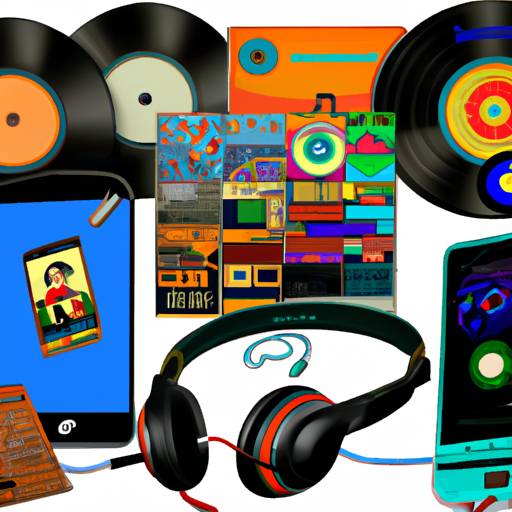The Influence and Implications of Digital Transformation on the Music Industry
Digital transformation has significantly influenced the music industry, affecting everything from the medium of consumption to the way music is produced and distributed. This change has had both positive and adverse effects on the industry, impacting artists' income and consumers' habits. Understanding these implications can potentially unlock future opportunities and mitigate potential challenges in the music industry in the digital age.
Shift from Physical to Digital Mediums
Previously, music was primarily consumed through physical mediums like LPs, cassettes, and CDs. Today, digital platforms, especially streaming services like Spotify, Apple Music, and TIDAL, dominantly deliver music to consumers. The shift from physical to digital consumption is due to digitization's convenience and accessibility, which offers instant access to millions of songs from devices connected to the internet.
Change in Music Production and Distribution Techniques
Digital transformation has led to a significant change in the way music is produced and distributed. Previously, music production needed sophisticated equipment and infrastructure, often reserved for established recording studios. However, technological advancements now allow music production on smaller scales, even from homes. Additionally, artists can independently distribute their music directly to the audience through digital platforms, reducing dependence on record companies.
Impact on Artists' Income
One of the critical areas where digital transformation had a negative impact is artists' revenue. While digital distribution reduced production costs, it also led to decreased income for artists due to the low royalty payments from streaming platforms. Many artists depend on touring and live performances to supplement their income, causing significant difficulties, especially in the context of global events like the COVID-19 pandemic.
Influence on Consumers' Music Consumption Habits
Digital transformation has significantly influenced consumers' music consumption habits. With unlimited access to music, consumers can listen to a broader range of songs and artists than before. Moreover, the convenience of digital music has increased music consumption rates, with people more likely to listen to music during their daily routines or activities.
Technological Advancements in Live Performances and Marketing Strategies
Live performances have also been substantially altered by technology, with augmented reality (AR) and virtual reality (VR) being integrated for a more immersive experience. Similarly, artists use social media platforms and digital marketing strategies to connect with their audience directly and promote their work.
Future Developments and Challenges
The future of the music industry hinges heavily on continuing technological advancements. Algorithms and artificial intelligence can lead to personalized music experiences by learning from consumer listening habits. However, potential challenges include privacy concerns and artists' struggle to generate decent revenue in a digital age where music is often expected to be free or low-cost.

















Comments
Leave a Comment